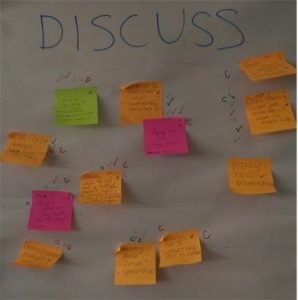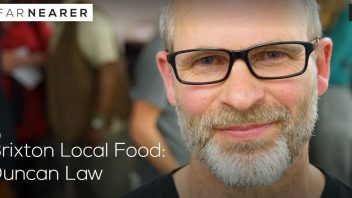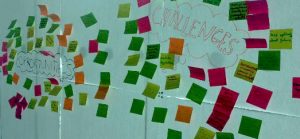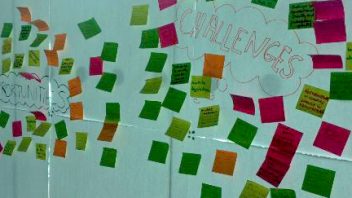 In 2014, with the support of Friends Provident Foundation & Polden-Puckham Charitable Foundation, the UK REconomy Project set out to explore how communities themselves can best support the growth of local, sustainable social enterprise.
In 2014, with the support of Friends Provident Foundation & Polden-Puckham Charitable Foundation, the UK REconomy Project set out to explore how communities themselves can best support the growth of local, sustainable social enterprise.
Since then Transition Town Totnes and Brixton have been busy running pilot projects focused on developing & testing new tools and ideas in their communities. We’ve also been learning from the experiences of REconomists across the UK who we’ve met through our events programme. We’ll be building on this work over the next year. In the meantime please find below some of the key things we’ve learned so far…
It’s all about the base – The community aspect of Community Supported Enterprise is crucial. Even with lots of energy and drive, lone operators struggle and projects often stall or fail. Creating a really strong, broad and motivated base of local people to develop, deliver and support REconomy activity is a vital first step which can then be used as a springboard for lots of exciting activities.
Place matters – as it makes a big difference to the type of support enterprises need –
- In rural Devon the challenges for enterprises have been a lack of physical resources (accessible work-space) and also missing elements of the entrepreneurial eco-system (e.g. professional consultants, investment culture). In this case their approach has focused on finding ways to develop these missing elements & unlock resources.
- In Brixton, an urban area in a global hub, there is already a strong entrepreneurial culture, and a fairly crowded & busy ‘business support market’. A large part of the Brixton Team’s work has been helping new Transition-orientated entrepreneurs navigate this frenetic landscape, connecting them with useful partners and mentors. Working with partners to create coordinated activities makes sense in terms of avoiding duplication, accessing pools of expertise and also extending the reach of REconomy work. Partnership working is challenging as there are many actors, with different priorities who are all very stretched delivering their own projects. Finding ways to harness this energy to create positive & coordinated community action is a key priority.
- Our experience in Wigan reminded us that urban areas also differ greatly. In an area that has seen generations of economic deprivation, the challenges are very different.
Culture counts – In Totnes the team are reporting the growth of a more inclusive and resilient local economy & a culture of ‘for community benefit’ entrepreneurialism. Changes they’ve noticed include an expanding membership of the REconomy Centre, a 50% increase in applications to take part in Local Economic Forum, an increase in mentoring offers & even a new community radio show covering the ‘new economy’. They are also seeing the emergence of large collaborative initiatives for example plans to develop a local financial investor network. So what makes the difference? As mentioned above, the team in Totnes see creating the conditions for an entrepreneurial ecosystem as a critical factor in delivering local economic transformation.
Missing connections – At our regional events people often seem surprised and motivated to find the number of other people committed to REconomy goals in their local area, many of whom are already delivering great projects that they did not previously know about. Events are a great way of making these connections, however we are finding a frustration that in our hyper-connected world it still takes an event to find out what is happening in your own backyard. Creating better connections and information flows between individuals & groups (outside or between events) feels like a major priority. We would be really interested in hearing people’s views and ideas on this!
Getting technical – We are seeing a demand for specific technical advice from groups doing similar things but who are based in different geographical areas. Key areas of interest include Community Land Trusts, community energy and local financial infrastructure (banks, currencies, investment schemes). There is also demand for general technical advice relevant to different types of enterprise, type of advice most often requested includes information on ‘new economy’ financial services, strategic planning & business modeling.
Event evolution – Great events are a process, not a one off. With both our Regional Events and the Local Entrepreneurs Forum we are finding that if you want to have lasting impact the event follow-up is just as important as the day itself. This means that if you want to inspire action it is important that you think beyond the event when devising your plan.
Group support programmes? In both pilot areas we have found that enrolling a group of enterprises onto a single local support programme is problematic. Enterprises are all at different stages, with different pressures and are moving at different speeds. In all cases nascent enterprises have limited time, so they must ensure all activities they commit to are relevant and targeted. These factors mean a one-size fits all, local enterprise support programme or course doesn’t always work. On a local scale 1-2-1 support and peer-2-peer mentoring seems to work much better. Having said this, there is still a desire for local ‘mission-based’ enterprises to be connected and to support each other.
Personal factors – Some of the Enterprises we have worked with this year have encountered personal challenges that have caused them to shift priorities, slow down or withdraw from enterprise activity altogether. Although theses are often complex situations, factors like poor public transportation, limited child care options, and inadequate housing have been identified as barriers to progress. These are thorny issues and not unique to mission-led enterprises, however they are potential areas where creative, community-scale approaches might make a big difference.
Support funding options – To sustain community-based enterprise support groups are recognising the need to look beyond traditional grant funding. Other options being considered include securing sponsorships from successful enterprises already working in the new economy, and enterprises who are interested in moving in that direction.
If you have any thoughts, ideas or experiences you’d like to share we’d love to hear from you. Please get in touch with Laura Outhart.
This REconomy Project work is generously supported by the Friends Provident Foundation and the Polden-Puckham Charitable Foundation.







Connect